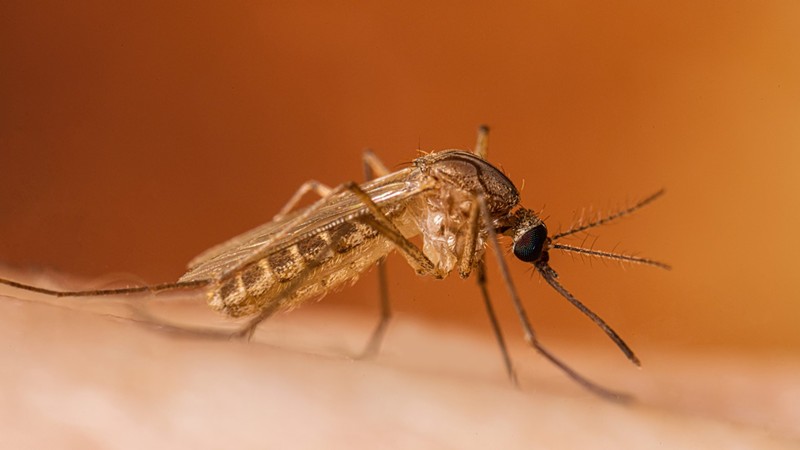In 2023, when the state had a very wet spring, Colorado experienced the worst West Nile virus outbreak in the U.S. and one of the deadliest years for West Nile since the mosquito-borne illness arrived in the U.S. back in 1999. According to the Colorado Department of Public Health and Environment, last year Colorado recorded 634 cases total in forty counties, and 386 people were hospitalized. In contrast, California had a total of 433 cases, nineteen of them fatal. Fifty-one people died in Colorado...and Rick Enstrom came close.
Colorado recorded its first 2024 case of West Nile virus in late June.
How do you get West Nile virus?
Most people get West Nile virus from the bite of an infected mosquito. Mosquitoes become infected when they feed on infected birds; infected mosquitoes can then spread the virus to humans and other birds.In a small number of cases, West Nile virus has been spread through blood transfusions, organ transplants and from mother to baby during pregnancy or at the time of birth.
Who is at risk for infection with West Nile virus?
Anyone living in an area where West Nile virus is present in mosquitoes can get infected. The risk of infection is highest for people who work outside or participate in outdoor activities, because of greater exposure to mosquitoes.People of any age can get West Nile virus. However, people over fifty are at the greatest risk for severe disease. People with certain medical conditions such as cancer, diabetes, hypertension and kidney disease, and people who have received organ transplants, are also at greater risk for serious illness.
What are the symptoms of West Nile virus?
Most people infected with mosquito-borne viruses don't get sick. For people who do, the time between the mosquito bite and the start of symptoms can be from two to fourteen days. In rare cases, the virus can cause a serious brain infection such as meningitis or encephalitis. These infections begin suddenly with high fever and headache and may progress to stiff neck, disorientation, tremors and coma; severe infections can result in permanent brain damage or death.
How can you avoid West Nile virus?
According to the Colorado Department of Public Health, the most effective way to prevent West Nile virus disease is to prevent mosquito bites. To protect yourself, the agency advises:Use insect repellents when you go outdoors. Repellents containing DEET, picaridin, IR3535, and some oil of lemon eucalyptus and para-menthane-diol products provide the best protection. Follow label instructions. Limit outdoor activities at dusk and dawn, when mosquitoes that carry West Nile virus are most active.
Wear protective clothing (long pants, long-sleeved shirts and socks) in areas where mosquitoes are active. Spray clothes with insect repellent for extra protection.
There is no treatment for the virus other than supportive care, and there is no vaccine to prevent it.












